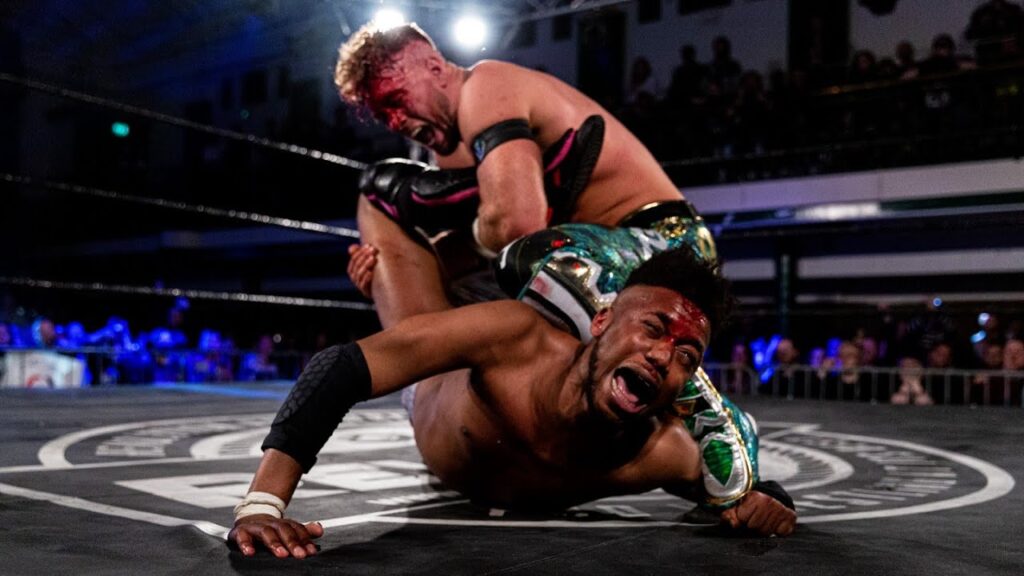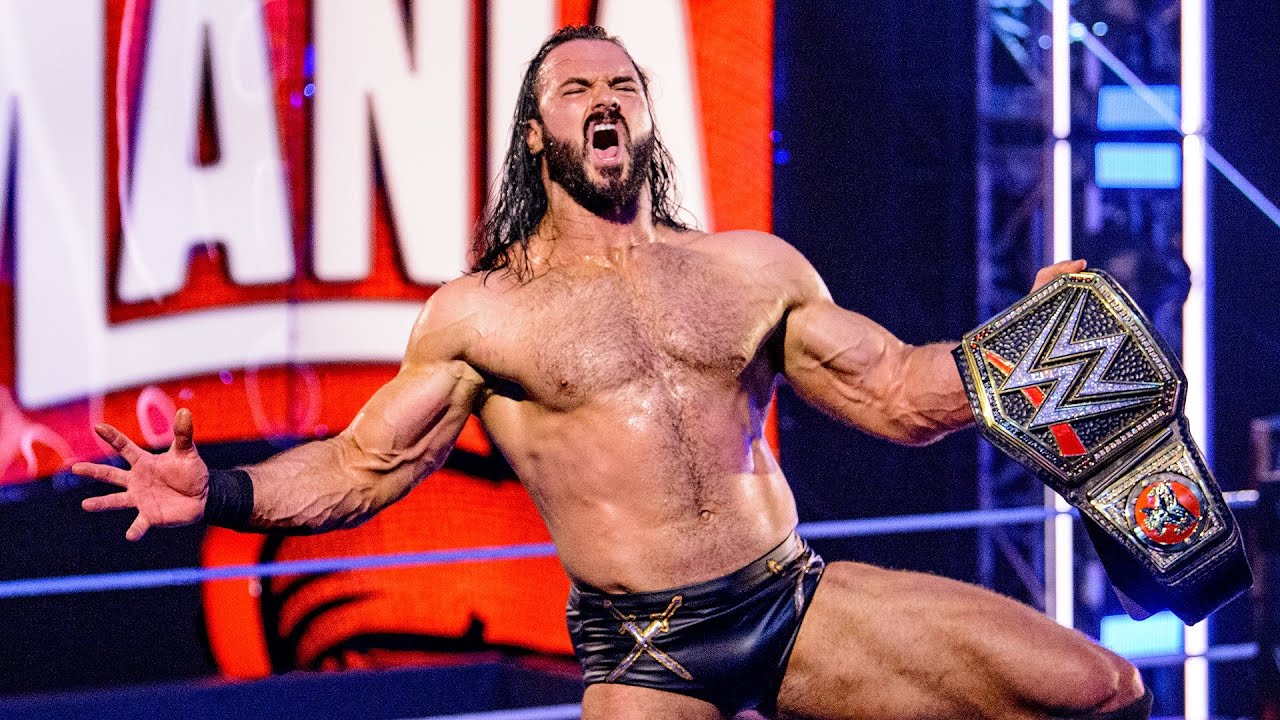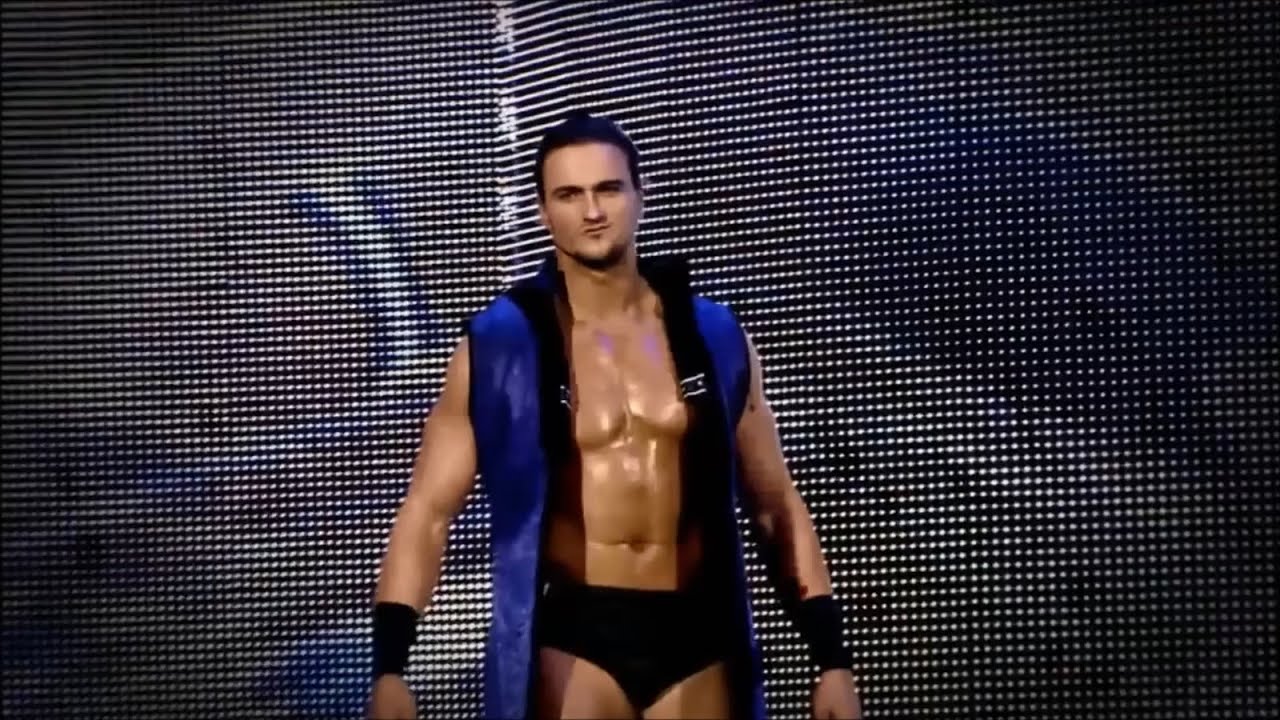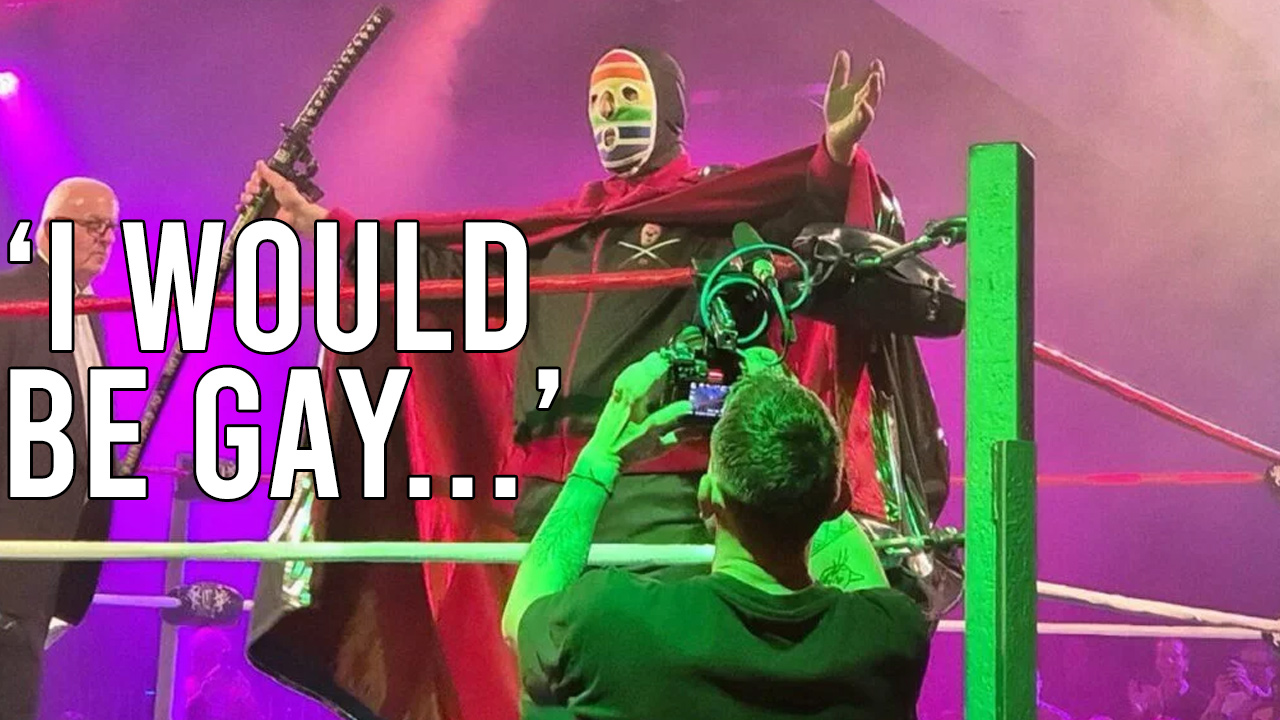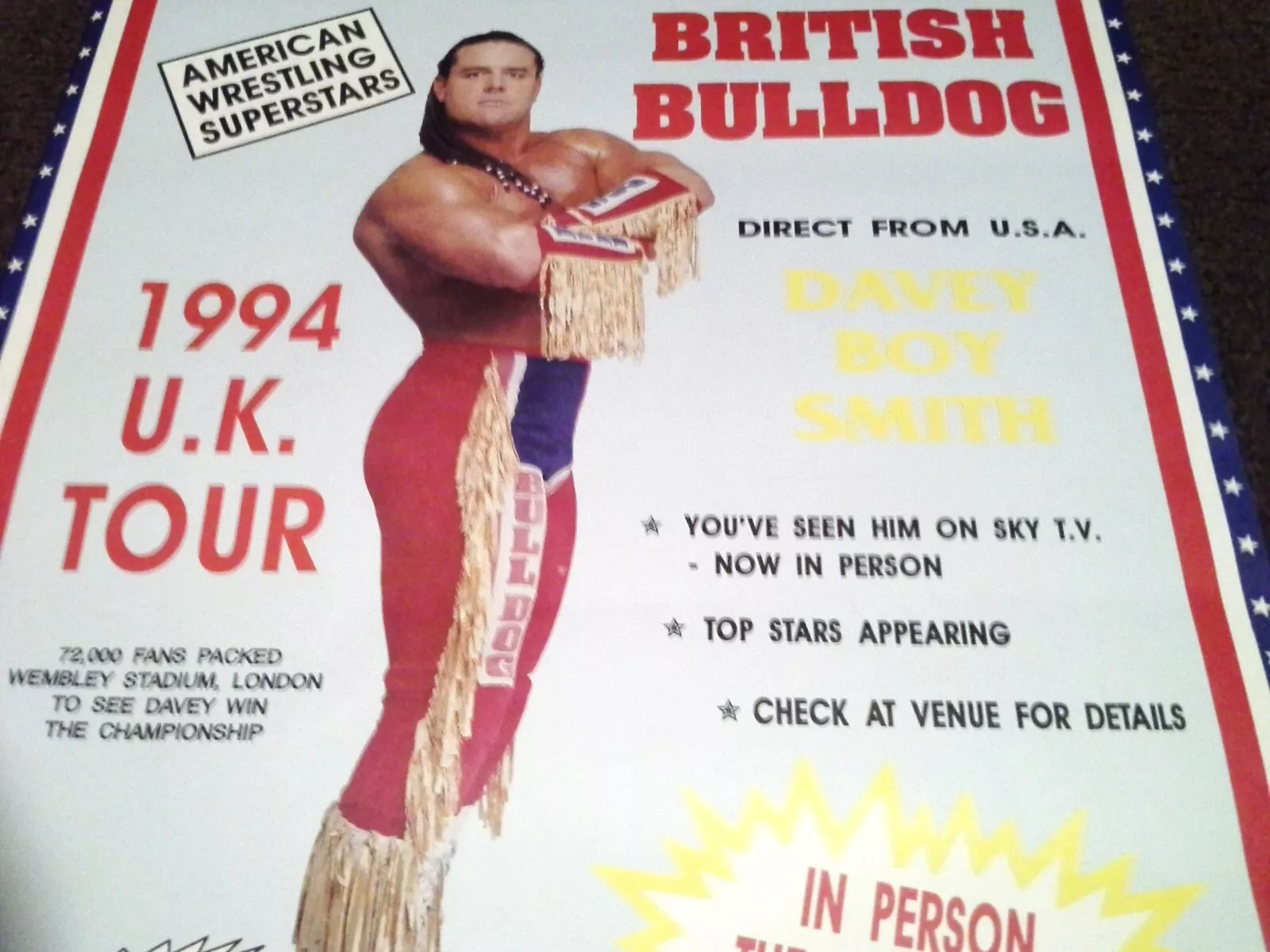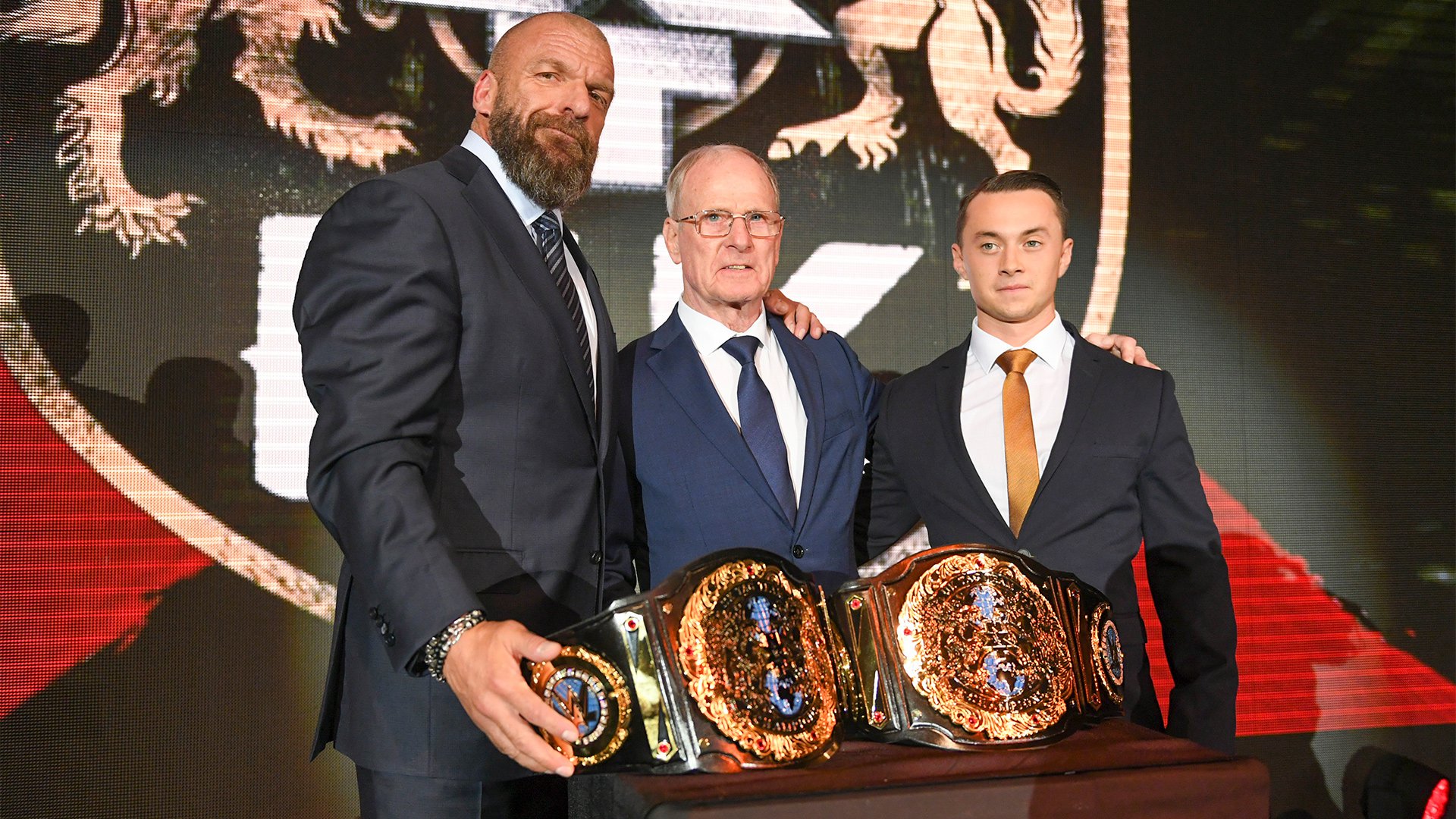British professional wrestling has a storied history that spans over a century, reflecting the evolving tastes and traditions of fans while mirroring societal changes.
From the catch-as-catch-can roots of Tom Cannon’s pioneering days to the global phenomenon of promotions like RevPro and Progress Wrestling, the landscape of British wrestling has been shaped by innovation, resilience, and an unrelenting passion for the sport.
Each era has seen the rise and fall of promotions that defined their time. Whether it was the spectacle of All-In Wrestling, the dominance of Joint Promotions, or the rebellious spirit of the Frontier Wrestling Alliance, these organizations not only entertained but left an indelible mark on the wrestling world.
Alongside them, independent outfits like Orig Williams’ BWF and Brian Dixon’s All Star Wrestling carved out unique niches, fostering talent and bringing the thrill of wrestling to local audiences.
The modern era has seen British wrestling go from a post-ITV decline to a vibrant resurgence, only to face new challenges from larger entities like NXT UK.
Yet, through it all, British wrestling remains a cornerstone of the global wrestling scene, its rich history a testament to the ingenuity and grit of its promoters, wrestlers, and fans.
This article explores the most significant wrestling promotions in British history, each of which played a pivotal role in shaping the sport.
From the early days of catch wrestling to the punk rock spirit of Progress and the international allure of RevPro, these are the promotions that built British wrestling into what it is today.
Tom Cannon’s Promotion Was The First Catch Wrestling Promotion In Britain
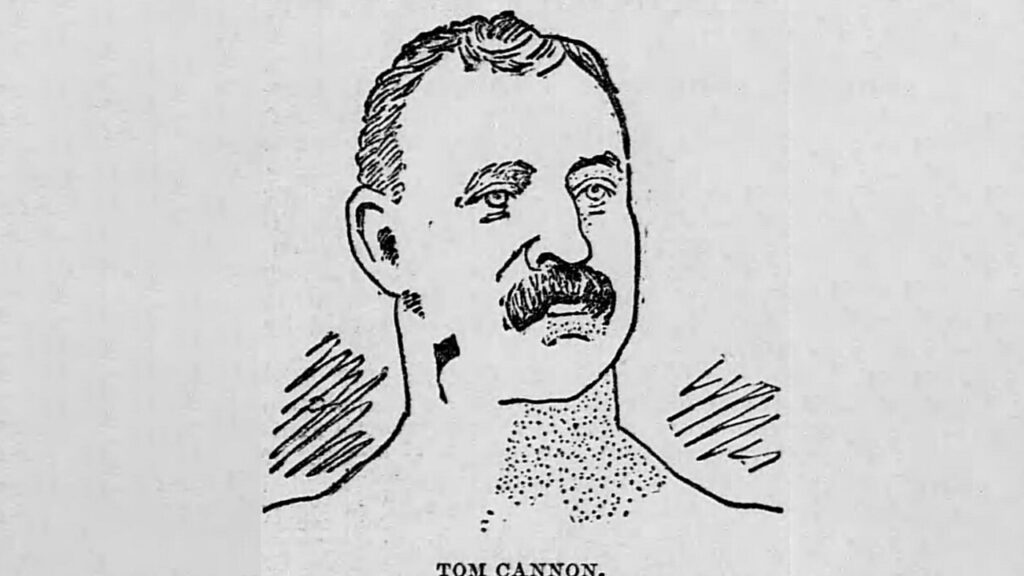
Wrestling, in the real sense, had been going in Britain for over a thousand years before Tom Cannon created the first Catch-As-Catch-Can wrestling promotion in the 1890s.
The sport was in a state of change. While it was still considered a real sport, there was always fixed fights and wrestlers realised that a good fake fight drew more punters and risked less than a real one.
Tom Cannon made the first promotion in 1899 after Catch wrestling took over London. He created Tom Cannon Promotions after an Easter Holiday tournament proved a huge success that year which is said to be the first of its kind in the history of British wrestling.
Cannon was a top wrestler in his own right. He lost a title belt to Georg Hackenschmidt in his biggest match which became more famous the fans brawling outside the ring than those inside it.
Sir Atholl Oakley Launched The British Wrestling Association After Creating All-In Wrestling

After World War I, wrestling was on the decline. Top stars like Jack Carkeek and Georg Hackenschmidt had left the country and due to the effects of the First World War there was a dearth of talent to replace them.
Interest fell in the sport and wrestling became a shadow of its former self. To counter this, a new ruleset was created by a comittee led by Sir Atholl Oakley. This became known as “All-In Wrestling” and it transformed the sport into something never seen before.
If you want to learn more about All-In wrestling, check out our article on the subject.
The British Wrestling Association were created to promote this new style which caught on all over the country. Business boomed but demand for top wrestling outnumbered supply.
The words “All-In” became synonymous with “anything goes” as less-skilled wrestlers resorted to a more hardcore style to compensate for a lack of wrestling ability.
This led to another downturn in the wrestling business, compounded with the effects of the Second World War breaking out in 1939. The violence got so much that wrestling was banned by London County Council in 1944 due to the increasing violence it perpetuated in the ring.
It wouldn’t be until after the war when a new set of rules would be introduced that would change the sport in Britain forever.
Joint Promotions Created A Monopoly In Wrestling In 1952

While wrestling had been popular before World War II, it absolutely exploded following it. After the creation of the Mountevans Rules in 1947, a group of promoters came together to create a monopoly that would dominate for nearly half a century.
In 1952, six promoters joined forces to create Joint Promotions. They were led by Dale Martin Promotions who ran London, which was the biggest market in the country.
There was an agreement to share talent between the six, although anybody who worked outside of Joint Promotions would not be able to work any of their shows going forward.
As they became the biggest in the country, working outside of the monopoly meant effectively forgoing a career in professional wrestling.
Joint Promotions also had the only TV deal in the country for 20 years on ITV and made household names out of Big Daddy and Giant Haystacks among others.
After Big Daddy’s death, the company trundled along with the British Bulldog as the figurehead until closing their doors in 1995.
Learn about the full history of Joint Promotions here.
All Star Wrestling Sought To Break Up The Joint’s Dominance
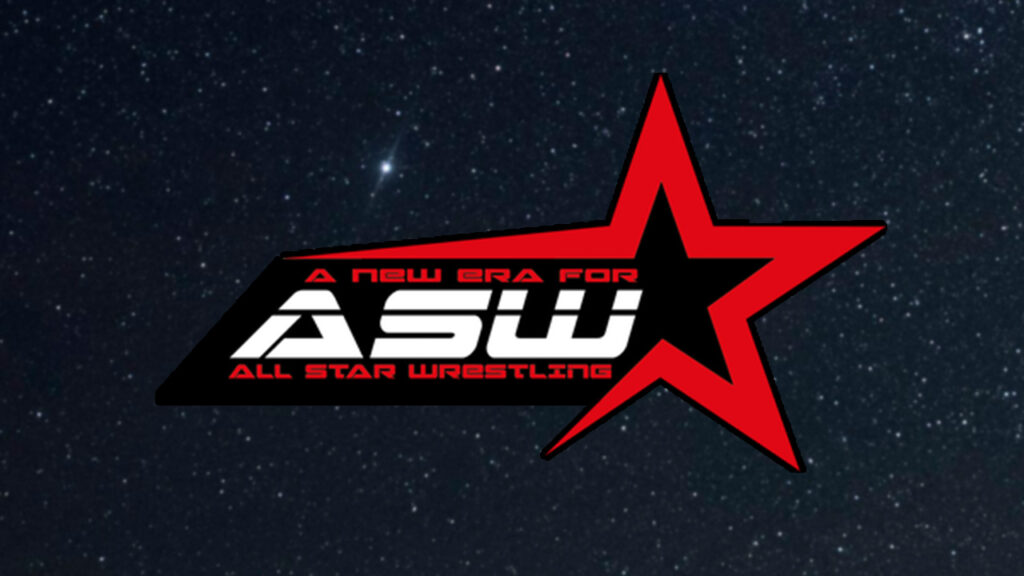
While Joint Promotions dominated the wrestling landscape in the 20th century, Brian Dixon sought to challenge their monopoly with his own promotion.
Originally known as Wrestling Enterprises, All Star Wrestling was chief opposition to Joint Promotions. They managed to poach stars like Kendo Nagasaki and Mark “Rollerball” Rocco and even nicked part of their ITV slot in the 1980s too!
While promotions come and go, All Star Wrestling remain in business even to this day. Brian Dixon spent fifty years in charge of the company, only handing over the reins to the company a year before his death, in 2022.
All Star Wrestling also managed the tours around holiday camps like Butlins. Stars like William Regal and Bryan Danielson toured Butlins with Brian Dixon, forging memories that would last a lifetime.
To find out the exciting history of All Star Wrestling, click this link!
Orig Williams Ran His Own “Opposition Promotion” In Wales – The British Wrestling Federation.

Brian Dixon wasn’t the only opposition promoter. Orig Williams was the top man in Wales during the golden era of wrestling, with his British Wrestling Federation being the best of the rest.
The Welshman ran shows not only in Wales and Ireland but all over the world. He promoted events in countries like Nigeria, India and Pakistan and was one of the most ambitious men in wrestling.
Orig Williams was also a big supporter of women’s wrestling. In a time when the female side of the sport was banned from TV and outlawed in London, he pushed wrestlers like Mitzi Mueller as big stars (even if it caused a riot in Turkey on one fateful evening).
He was also the man who discovered former WWE star Mason Ryan, envisioning him to be the next Welsh-speaking superstar in wrestling.
Frontier Wrestling Alliance Was A Pioneering Promotion After ITV Cancelled The Wrestling

Frontier Wrestling Alliance (FWA) remains a pivotal chapter in the history of British wrestling. Established in 1999 by Mark Sloan, the FWA sought to rejuvenate a wrestling scene that had been in decline since the golden days of World of Sport.
With a vision to blend traditional British grappling with the athleticism and storytelling seen in the U.S. and Japan, the FWA became a cornerstone in the revival of UK wrestling.
Operating out of Portsmouth and later expanding across the UK, the promotion quickly gained a reputation for delivering high-quality matches and fostering new talent. It wasn’t afraid to experiment, hosting innovative tournaments like the FWA British Uprising events, which became the promotion’s flagship shows.
The FWA also became a launching pad for some of Britain’s brightest stars. Wrestlers like Doug Williams, Jody Fleisch, and Jonny Storm earned acclaim not just at home but internationally, as the FWA gave them a platform to showcase their technical mastery and high-flying innovation.
The promotion also opened its doors to international talent, bringing in wrestlers like Christopher Daniels, AJ Styles, and CM Punk, creating a melting pot of styles that made FWA shows must-see events for wrestling purists.
However, the FWA wasn’t just about in-ring action—it was a pioneer in building a narrative-driven product for UK audiences. It embraced long-term storytelling, compelling rivalries, and factions like The Family, adding depth to its matches and drawing fans deeper into its world. Its presentation, from the sleek production to the compelling commentary, set a standard that influenced the modern UK wrestling scene.
Despite its early success, the FWA faced challenges in maintaining its momentum. Internal struggles, the rise of competing promotions, and the fluctuating popularity of wrestling led to the promotion folding in 2007. Attempts to revive the FWA in later years were met with mixed results, but its impact was already cemented.
Today, the FWA is fondly remembered as a trailblazer who set the stage for the British wrestling boom of the 2010s. Its spirit lives on in the thriving UK scene, proving that the foundation it laid was strong enough to withstand the test of time.
1PW Brought TNA To The UK But Kept Scamming Its Fans

One of the most infamous promotions in British wrestling history is One Pro Wrestling (1PW), mainly due to all the times they scammed their fans.
Founder Steven Guantley made the Doncaster Dome the hotbed for professional wrestling in the mid-2000s. 1PW brought numerous TNA stars to the UK during a time when the promotion was blowing up, although this usually came at the expense of the local British talent.
The shows were usually jam-packed with talent and very entertaining. However, Gauntley was borrowing money to fund the next show, leading to the entire promotion as a house of cards ready to collapse.
Numerous owners of the company suffered the same fate. They overspent on talent and struggled to pay the bills as the company went out of business numerous times.
The most infamous instances were when 1PW tried to bring The Great Muta and Shawn Michaels into the company, which were promptly cancelled with very few refunds issues to the fans.
Despite how many times they scammed the fans, 1PW is fondly remembered by those who attended the Doncaster Dome shows. They went out of business for the last time in 2023 after failing to pay wrestlers like Will Ospreay and Matt Cardona.
RevPro Quickly Became Britain’s Top Wrestling Promotion

As of today, Revolution Pro Wrestling (RevPro) are the biggest promotion in Great Britain. They were founded by Andy Quildan in 2012 after he split from IPW: UK following their partnership with NEW went sour.
Not wanting to be beholden to anyone else when booking his show, he split from the promotion to form Revolution Pro Wrestling. They ran shows around Portsmouth and London and quickly grew to become one of the top companies in the country.
They championed local talent along with foreign imports, a strategy which few had managed effectively and successfully over a long period of time.
However, it was the partnership with New Japan Pro Wrestling (secured by Prince Devitt in 2013 during his time in Japan) that helped them grow to new heights.
Bringing in talent like Hirsohi Tanahahi, Tomohiro Ishii and Katsuyori Shibata brought new eyes to RevPro. They became an international destination for wrestling and helped talent like Will Ospreay, Zack Sabre Jr and Marty Scurll gain international acclaim.
While matches like Will Ospreay vs Vader and controversies like the Speaking Out movement soured some fans on the product, in 2024 they remain the premier destination for British wrestling.
Progress Wrestling Brought A New Way To Tell Stories In British Wrestling

While RevPro is the top promotion in the UK, Progress Wrestling has carved out its own niche with its unique brand of storytelling.
It was founded by Jim Smallman and Jon Briley in 2011 and did things a little bit differently. Rather than traditional events, their shows were sorted into “chapters”. This allowed Progress to tell stories in a more serialised way, more like a traditional TV show than a live wrestling experience.
This coupled with their “Punk Rock” presentation made them a unique entity in the sport. It gave them a solid brand identity and they quickly made stars of talent like Tyler Bate, Pete Dunne, Mark Andrews and more.
While they drew over 4,000 fans at Wembley Arena in their peak, Progress Wrestling’s partnership with the WWE took them away from their roots and started their decline as one of the most exciting promotions in the world.
ICW Made Superstars Out Of Scottish Wrestlers Like Drew McIntyre & Grado

Arguably the most exciting promotion in the UK for the past two decades was the Scottish punk outfit known as Insane Championship Wrestling.
Born out of the underground scene in Glasgow, the pioneering Mark Dallas built the promotion up from nothing and arguably started the BritWres boom.
He made stars out of wrestlers like Grado while revitalising the career of Drew McIntyre. This culminated in their biggest show ever in 2015 when Grado vs Drew McIntyre main evented ICW Fear & Loathing VIII.
Over 4,000 fans filled the SECC Arena in Glasgow for the show, which also included Rhyno and Mick Foley. This was the culmination on the revival of Scottish wrestling, with ICW the posterchild for British wrestling for many years.
Sadly their relationship with the WWE ended their status as the top indie company and their stock soon dropped in the eyes of the fans. While ICW are not the monster they once were they still hold a place in British wrestling history.
World of Sport Wrestling Was ITV’s Failed Attempt To Bring Wrestling Back To The Mainstream
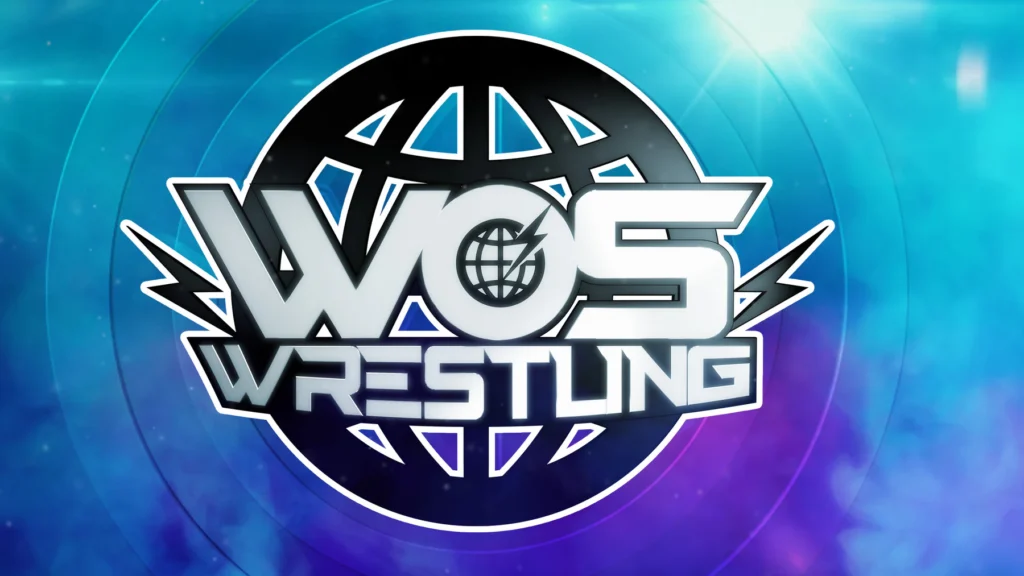
ITV sought to ambitiously bring wrestling back into the mainstream by creating a new World of Sport Wrestling promotion.
They brought together some of the top wrestlers in the UK like Grado, Will Ospreay and Rampage Brown and even handed them a primetime slot on ITV on Saturday.
A decent but uninspired pilot in 2016 impressed enough to get a TV series greenlit. However, the 2018 TV show failed to impress anybody and viewers turned off in their droves.
It seemed like a wrestling show that was not enough “wrestling” for wrestling fans, and simply too much “wrestling” for mainstream audiences. It aimed to appeal to everybody and ended up appealing to nobody.
An attempt to reboot the show in 2025 could breathe new life into World of Sport but only time will tell on that one.
Read about how the World of Sport reboot failed to bring wrestling back to the glory days.
NXT UK Sought To End The British Wrestling Boom

No one promotion has done more damage to the British wrestling economy than NXT UK.
In response to World of Sport Wrestling launching in 2016, the WWE announced a new United Kingdom Tournament, along with a new WWE UK Championship belt to boot.
They signed up all the top stars in the country, like British Strong Style and all the biggest names in Progress and ran a two-night tournament to crown Tyler Bate as the first-ever WWE United Kingdom Championship.
Once the full World of Sport Wrestling series was announced, Triple H revealed WWE’s intention to run NXT UK in Britain. Snapping up even more talent like Toni Storm, Rhea Ripley and WALTER, they ravished the main event scene in the UK and left them a shell of their former selves.
They even signed deals for Progress and ICW to appear on the WWE Network. This meant they had to get rid of the licensed music used for entrances. These two things ruined their “Punk Rock” vibes, becoming just another subsidiary of the WWE.
While COVID and Speaking Out pulled the plug on the British wrestling scene, NXT UK put it into a coma with its predatory practices.
Learn more about how NXT UK killed the British Wrestling scene.
Wrestling Entertainment Series

One of the most infamous promotions in history never even ran a single show.
WWE’s Authors of Pain, Akam and Rezar, decided to run their own promotion in the UK. This was despite neither man being from the country nor having any experience promoting wrestling.
This promotion was called the Wrestling Entertainment Series, which doesn’t make much sense.
As expected, the whole thing was a scam. Wrestlers, like Nia Jax, were announced for the show but never agreed to appear. They advertised a card chocked full of ex-WWE talent and was even set to include UFC star Alistair Overeem’s debut in wrestling.
They attempted to sell out the 10,000-seater Motorpoint Arena in Nottingham. Very few tickets were sold and the whole thing quickly fell apart.
Read more about how Wrestling Entertainment Series tried to scam fans with their ambitious start-up.
Nigel McGuinness Tried To Launch LA Fights Via Kickstarter
Another promotion that failed to get off the ground was a crowd-funded venture by Nigel McGuinness.
After retiring from wrestling in 2013, he managed to get enough money on Kickstarter to release his own documentary.
Following this success, he attempted to convince fans to part with a massive $350,000 to help him fund “LA Fights”, a wrestling TV show based on Los Angeles.
The show failed to reach its crowd-funding goal but that didn’t mean it was the end for Nigel McGuinness.
Discover what happened to Nigel McGuinness and his LA Fights wrestling promotion.
